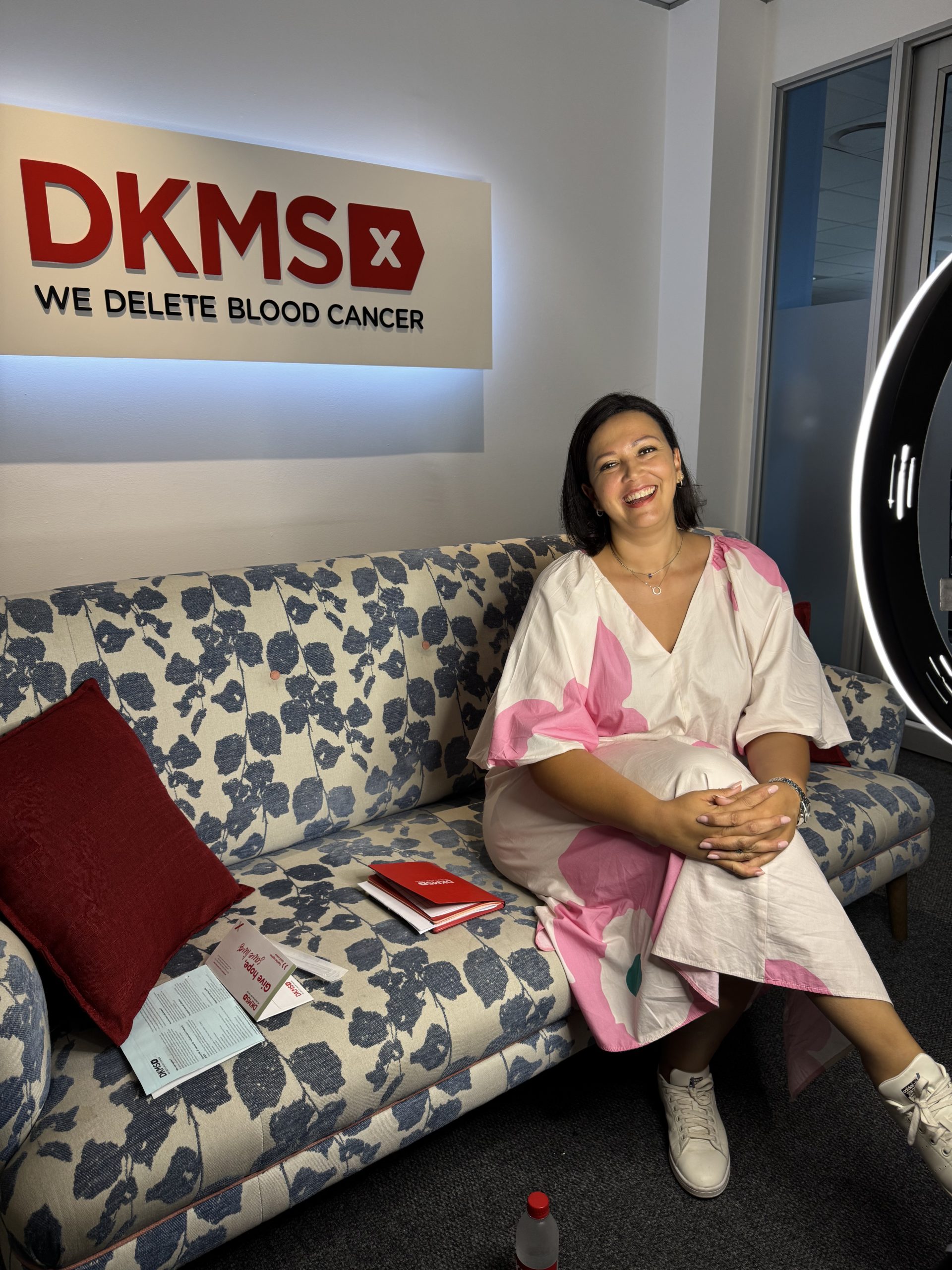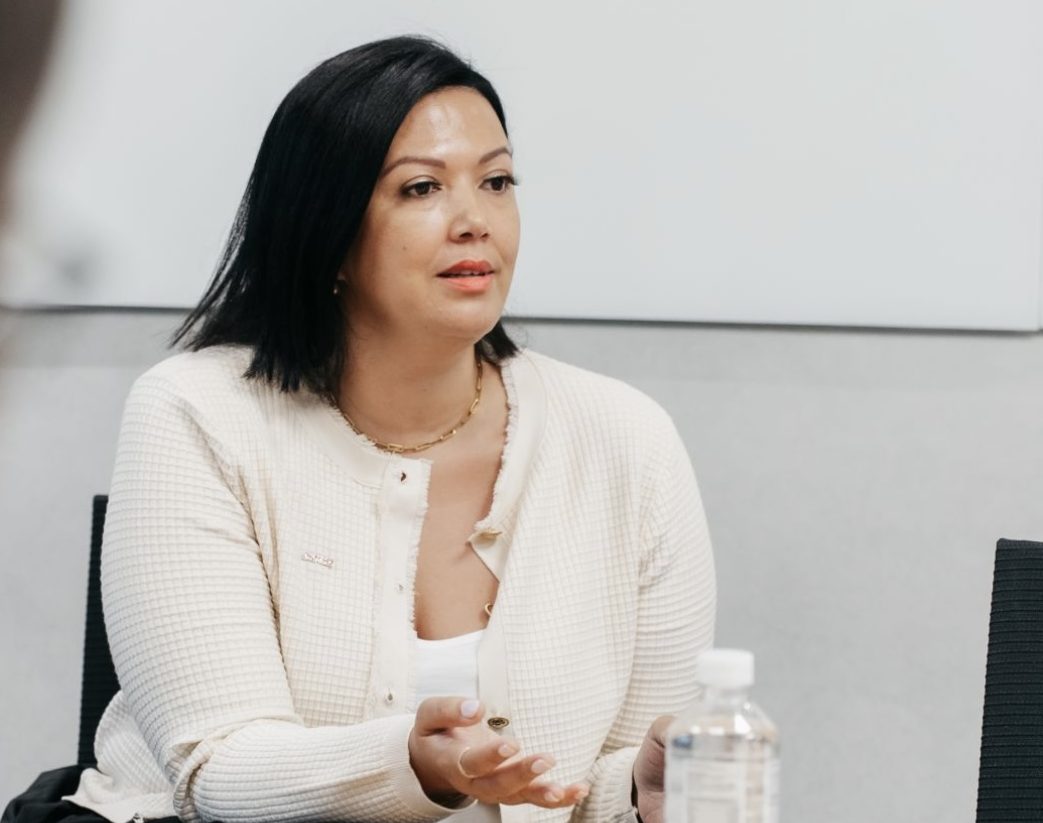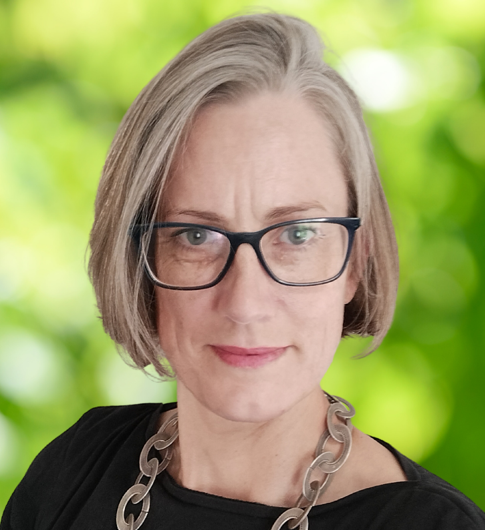Our Comms Spotlight for this week is Chandré Phillipus. She initially seemed to be on the path to become a Journalist but a passion for passion for words led her to study Public Relations. Currently, she’s the Country Manager at DKMS Africa where she combines the power of advocacy and leadership to drive real-world impact. Her focus in the health sector is currently focused on saving lives by recruiting more life-saving blood stem cell donors and making stem cell transplants more accessible to those who need it most. Chandré shares her incredible journey with us and gives us nuggets of wisdom worth holding on to.
How did you begin your career in Communications?
I was always going to be a storyteller. As a child, I loved reading and writing short stories, and throughout high school, my teachers were sure I’d become a Journalist.
That passion for words led me to study PR, and my first professional role was in corporate communications at Shell, where I supported internal and external change during a global systems migration.
Over the past 22 years, I’ve worked across various sectors and countries, but the core of my work has always been the same: connecting people, purpose, and strategy. Every role has deepened my belief in the power of effective communication to move people and transform organisations.
Tell us about your role as the Country Manager at DKMS Africa.
As Country Manager for DKMS Africa, I lead a talented team of individuals committed to giving patients with blood cancer and blood disorders a second chance at life. I ensure our work aligns with DKMS’s global strategy, while adapting our approach to the unique context and needs of South Africa.
It’s both a leadership and advocacy role – and it allows me to combine strategic thinking with human-centered storytelling to drive real-world impact. Our efforts are geared towards expanding our impact across South Africa by recruiting more life-saving blood stem cell donors and making stem cell transplants more accessible to those who need it most.
I regard this role as a privilege and I am deeply grateful that I get to align my personal purpose of “leaving people better than I found them” with our professional mission.

What’s one thing about leading Communications for a health-focused non-profit that people often misunderstand?
It’s easy to assume that communications in the health non-profit space is purely educational – focused on sharing facts and science. But what I’ve learnt this past year is the emotional complexity of creating impact as we pursue our mission.
We’re telling the stories of real people facing life-threatening illnesses, and our messages must balance urgency with hope, data with dignity. It’s deeply personal work. It requires empathy, cultural sensitivity, and the ability to connect with people beyond just information – to truly move them to care, to act, and to stand in solidarity.
Can you tell us about some career highlights that have made your career colourful?
Joining DKMS Africa has been a standout career highlight. Under the inspirational leadership of our Global CEO, Dr Elke Neujahr, I have the privilege of being part of a woman-led organisation that pairs mission-driven work with the sophistication of any global corporate.
That combination is our superpower. We operate as a non-profit, but with sharp, strategic business practices that enable us to give second chances at life.
What sets us apart even more is how we do it – with heart. Empathy is in our DNA. While we work with data, systems, and strategy, we never lose sight of the human stories behind it all. It’s that balance of head and heart that makes this work so meaningful, and being part of a team that leads with both is something I’m incredibly proud of.
There have been other moments I treasure too. Back in 2013, during my time at Brandhouse Beverages, I coordinated an employee recognition programme anchored in the company’s values. Colleagues were nominated by their peers or line managers for living out those values through exceptional work.

What I didn’t know was that our MD at the time, Jeff Milliken, had nominated me in the Bold in Execution category — and that night, I was announced as the winner.
Beyond the honour itself, what stayed with me was the reminder that recognition and connection truly matter. I had been quietly doing the work because I believed in its value, and to have that impact recognised so publicly was deeply affirming. That experience helped shape how I’ve approached employee engagement and communications ever since.
Can you share one career lesson you learnt early on that still guides you today?
I’ve carried two key lessons with me throughout my career. The first came from an external influence – Jeff Milliken, the MD at Brandhouse when I was there. In an internal interview, he spoke about leading with the principle of “simplifying the complex.” That phrase stuck with me. Over the years, I’ve come to see how the power of storytelling can do just that – make complex ideas accessible, relatable, and actionable.
The second is a more internal, personal lesson: the value of authenticity. Working across diverse environments – South Africa, the UK and Rwanda – taught me to adapt my message without compromising my integrity. Communication is never one-size-fits-all. You need to listen deeply and tailor your approach, but your values, your voice, and your intent must remain consistent. That has been my compass throughout every chapter of my career, and personal life.

If your career journey was a book, movie or song, what would it be named and why?
It would be titled “Connected.” My journey has always been about connecting people to purpose – whether through employee engagement campaigns or brand-building for social good.
The name reflects both my personal leadership style and professional mission: to build bridges – between organisations and audiences, between stories and strategy, and ultimately between people and impact.
And now, at DKMS, that connection feels more present than ever. Every moment in this role reminds me just how deeply aligned I am with our brand and our purpose.





